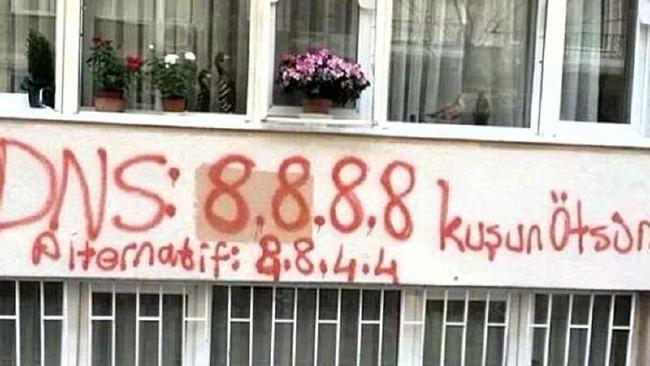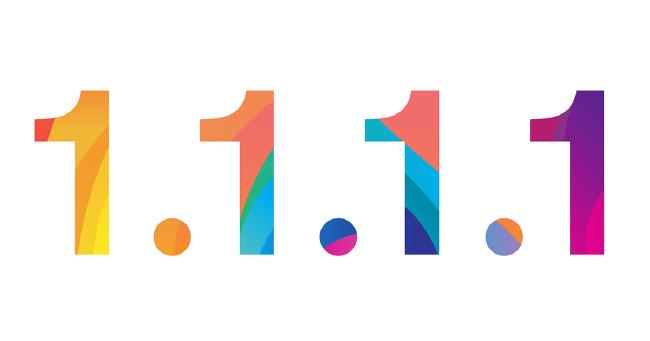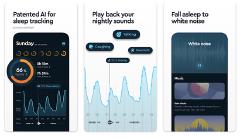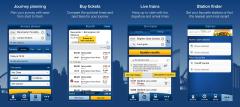Categories
Speed up the web and protect your privacy with this free app
3 minute read
In 2014, Turkish protestors began doing something a little odd. They started spray-painting a series of numbers onto billboards, road signs and walls: 8.8.8.8. These digits referred to Google’s public DNS (Domain Name Service), which translates human-readable web addresses (“giffgaff.com”) into the unique numerical addresses (“185.11.124.51”) that routers and switches understand. By using Google’s DNS instead of domestic DNS services beholden to the Turkish government, Turkish internet users could access websites like Twitter that were blocked throughout the country. Turkish internet service providers also had no way of tracking which sites 8.8.8.8 users were visiting, preventing reprisals.
Now, another public DNS service is making waves - and this time, it’s going international. Cloudflare’s 1.1.1.1 DNS, available as an app on Android and iOS, can prevent your internet service provider from seeing which sites you’re visiting and speeds up the web at the same time. Here’s what you need to know.

First up, the privacy. Cloudflare are promising not to keep any personally identifiable information, with logs being deleted within 24 hours. This is a nice feature for anyone that is concerned about data protection. Cloudflare have also committed to annual audits of their privacy-focused service by KPMG. VPN services may offer better privacy by encrypting all traffic, not just DNS queries, but for the low cost of “free”, 1.1.1.1 seems a sensible choice!
Secondly, the speed. Cloudflare’s significant internet presence allows the company to offer an extremely fast DNS. Tests performed by Nykolas Z and published on Medium showed that CloudFlare was the fastest DNS for 72% of the 18 locations they tested, with an average response time of 4.98ms. By comparison, Google’s DNS averaged 16.44ms, three times slower than 1.1.1.1 but coming ahead of the other six DNS providers tested. It is a difference of just milliseconds, but DNS queries are used constantly by your computer so it could translate into more significant time savings over time.

If you’re interested in trying 1.1.1.1 for yourself on your phone or tablet, you can download the 1.1.1.1 app for free on Google Play or the iPhone App Store. You can also use 1.1.1.1 on Windows, MacOS, Linux and routers; instructions for all of the above are included on the 1.1.1.1 website.
On Android, the 1.1.1.1 app uses a local VPN server to route DNS traffic through Cloudflare’s servers. That unfortunately means that you can’t run a VPN at the same time. If you’re on Android 9 or later, then you can instead manually change your DNS without installing the 1.1.1.1 app to get the same result (instructions here). On older versions of Android you’ll need to make this change manually for each Wi-Fi connection and there’s no way to change your DNS while you’re connected to your mobile network, so the Android app makes a lot of sense.
What do you think of 1.1.1.1? Let me know via Twitter @wsjudd.





